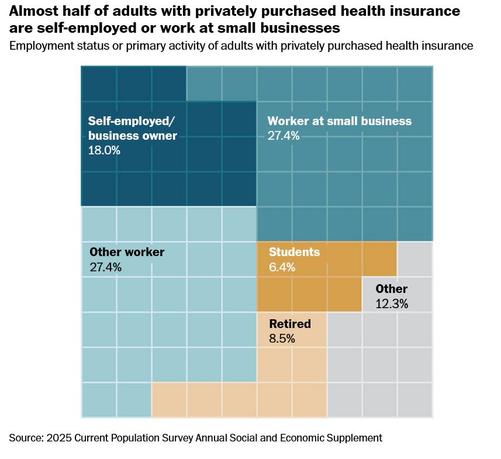When health insurance subsidies end, who will be affected by higher prices? – The Washington Post
Politics Donald Trump The Fix The Briefs Polling Democracy in America Elections
Who will lose out when ACA health insurance subsidies expire?
Here’s a look at who could be affected by the end of the Affordable Care Act credits and how much prices could change.
Today at 6:05 a.m. EDT, 8 min
Some 22 million Americans are set to lose health insurance subsidies by the end of the year. Who are they, and what will happen if the subsidies are allowed to expire?
These subsidies, known as enhanced premium tax credits, lower costs for people who buy their health insurance through Affordable Care Act (ACA) marketplaces (sometimes called Obamacare). They are at the heart of a weeks-long standoff that has shuttered the federal government since October 1. About 80 percent of the people who benefit from them live in states that Donald Trump won in the 2024 presidential election. Many have no idea that their health insurance costs are on track to go up.
Who benefits from the tax credit?
Almost everyone who got their health insurance through an ACA marketplace in 2025 received the enhanced premium tax credit, so describing the people who have ACA plans is a good way to get a sense of the people who get the credit.
The typical person with an ACA plan is an adult in their mid-40s with an income between 100 and 200 percent of the federal poverty line, or about $21,000 to $42,000 for a family of two.
Lower-income people with ACA plans will return to the lower subsidy levels from the early years of the ACA if the enhanced credits expire. A smaller group withhigher incomes will become responsible for the full cost of their premiums.
Source: 2025 Current Population Survey Annual Social and Economic Supplement
Nearly half of the adults on ACA marketplace plans are self-employed, small-business owners or small-business employees, according to an analysis from KFF, an independent health policy research organization. While most Americans get their health insurance through their employer, those who work for small businesses (or themselves) often have to rely on the exchange.
“The Affordable Care Act is specifically designed to fill that gap,” said Jessica Banthin, a senior fellow in the health policy division of the Urban Institute, a think tank.Advertisement
Marketplace coverage is especially common among some occupations: At least a quarter of chiropractors, musicians, real estate brokers, farmers, dentists and manicurists currently benefit from the tax credit.
Not everyone who gets their health insurance through a marketplace is employed. A Washington Post analysis found that about 9 percent are retired people who may not yet be eligible for Medicare and that 6 percent are students. However, only people with an income are eligible for the enhanced premium tax credit.
Where do people use the credit?
Democrats have made extending the enhanced credits their main demand to reopen the government. That extension will mostly benefit people living in states where Trump won the 2024 presidential election.
Editor’s Note: Read the rest of the story, at the below link.
Continue/Read Original Article Here: When health insurance subsidies end, who will be affected by higher prices? – The Washington Post
#2025 #ACA #ACAMarketplace #AffordableCareAct #America #DonaldTrump #Education #Health #HealthInsurance #HealthSubsidies #History #Libraries #Library #LibraryOfCongress #Obama #Opinion #Politics #Resistance #Science #TheWashingtonPost #Trump #TrumpAdministration


